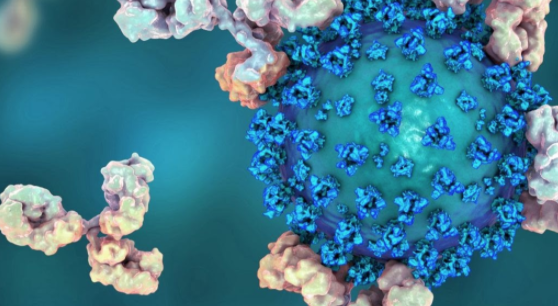COVID-19 Update July 15, 2020
- icshealthsciencejournal

- Jul 15, 2020
- 3 min read
This article contains:
Short-Lived COVID-19 Immunity?
Short-Lived COVID-19 Immunity?
Written By: Kandharika Bamrungketudom
A recent longitudinal study conducted by researchers at King’s College London that has yet to be peer-reviewed shows that the level of antibodies in recovered patients from COVID-19 peaks around three weeks after the infection and falls away rapidly afterward. This study brings up the fact that “herd immunity,” or the proposed tactic of combating the COVID-19 outbreak by infecting the population or vaccinating the population in order to stop the circulation of infection, may not be attainable in the short term. It also brings up the question of how effective the COVID-19 vaccine would be since essentially the vaccine is boosting the same type of immunity as when a person is naturally infected with the coronavirus.
When a person is infected with a pathogen, the body’s immunity follows a path of reaction. Starting off with the non-specific line of defense against the pathogen, macrophages, neutrophils, and dendritic cells defend the body to slow down the progress of infection. Next, the specific line of defense is activated in two pathways, either the cell-mediated immunity (carried out by T cells) or the antibody-mediated immunity (carried out by B cells). According to the US Centers for Disease Control and Prevention, this takes from one to three weeks to develop. The combined reaction of the T cells killing the virus-infected cells and the antibodies produced by B cells that bind to the virus, if strong enough, can protect the body from the invasive pathogen. In many cases, the elements of the specific response to a pathogen remain in the human body many years after the infection and will allow the body to react faster if exposed to the same pathogen again.
In the study conducted by King’s College London, 65 patients, 6 healthcare workers, and 31 staff, who were confirmed to have been infected with COVID-19, had their antibody levels tested and monitored throughout the three-month period of the study, which was between March and June. In the period of the study, 60% of the participants produced a potent level of antibodies, but only 17% of them were able to maintain that level throughout the three months period. In others, the level of antibodies becomes undetectable towards the end of the study. The findings of the study not only shows the decline in potent antibodies over time, but it also shows that different degrees of infection contribute to different degrees of natural immunization. What this means is that those who have been more severely infected with the COVID-19 have higher and longer-lasting levels of antibodies after the infection.
Outside evidence, such as the Spanish government’s study, has also found that people’s immunity to the coronavirus decreases after a few weeks. Another study, which was published in June in the journal of Nature Medicine, also found similar results regarding the different levels of natural immunization due to different degrees of infection.
This study, however, still has its limitations due to the small sample in the study. Researchers still need to know whether they would come to the same result if the study was conducted in a larger group and over longer periods of time.
When considering the vaccines, some adjustments may be needed. This is because the early results from the University of Oxford have shown that the vaccine it is developing produces lower levels of immunity in humans than when humans are actually infected with the real virus. Two options regarding this can be looked at, as Stephen Griffins, associate professor in the University of Leeds School of Medicine in the United Kingdom, mentioned, of either creating vaccines that can “generate stronger and longer lasting protection compared to natural infection, or they may need to be given regularly.”
Regarding the danger of herd immunity, experts warn that one shouldn’t purposely put themselves in the way of the COVID-19 disease, as not only does emerging evidence show that immunity is short-lived, but also that more severe lung diseases can result if they are infected again another time in the future.
The bottom line under all of this, as mentioned by Dr. Mala Maini, professor of viral immunology and consultant physician at the University College London in the United Kingdom, is that “this study reinforces the message that we can’t assume someone who has had COVID-19 can’t get it again just because they initially became antibody positive. It also means a negative antibody test now can’t exclude you having had COVID-19 a few months ago. And it suggests vaccines will need to be better at inducing high levels of longer lasting antibodies than the natural infection or that doses may need to be repeated to maintain immunity.”







Comments